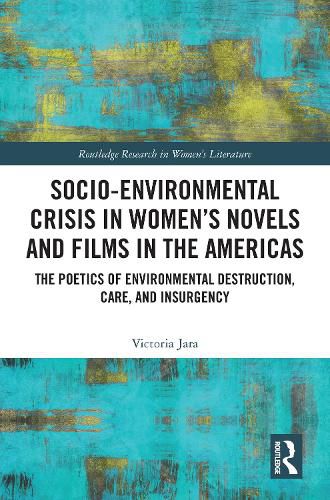Readings Newsletter
Become a Readings Member to make your shopping experience even easier.
Sign in or sign up for free!
You’re not far away from qualifying for FREE standard shipping within Australia
You’ve qualified for FREE standard shipping within Australia
The cart is loading…






The climate crisis has reached a critical point, necessitating urgent global action. Women's activism against environmental dispossession in the Americas manifests not only in protests and classrooms but also through artistic filmmaking and writing. This book focuses on the overlooked contributions of women filmmakers and novelists, highlighting how their work reveals the connections between environmental dispossession and various injustices related to gender, ethnicity, age, class, and labor. It demonstrates that contemporary women in the Americas engage deeply with ecological issues, analyzing their representations and identifying common principles across texts. Using an interdisciplinary approach from environmental humanities, gender and Indigenous studies, and film and literary studies, the author compares works from Canada and Latin America. Three poetics emerge: environmental destruction critiques harmful development; care expands notions of reciprocity beyond the human; and insurgency showcases struggles against extractivist models. These works invite readers to understand the complex interconnections of environmental justice within society.
$9.00 standard shipping within Australia
FREE standard shipping within Australia for orders over $100.00
Express & International shipping calculated at checkout
The climate crisis has reached a critical point, necessitating urgent global action. Women's activism against environmental dispossession in the Americas manifests not only in protests and classrooms but also through artistic filmmaking and writing. This book focuses on the overlooked contributions of women filmmakers and novelists, highlighting how their work reveals the connections between environmental dispossession and various injustices related to gender, ethnicity, age, class, and labor. It demonstrates that contemporary women in the Americas engage deeply with ecological issues, analyzing their representations and identifying common principles across texts. Using an interdisciplinary approach from environmental humanities, gender and Indigenous studies, and film and literary studies, the author compares works from Canada and Latin America. Three poetics emerge: environmental destruction critiques harmful development; care expands notions of reciprocity beyond the human; and insurgency showcases struggles against extractivist models. These works invite readers to understand the complex interconnections of environmental justice within society.